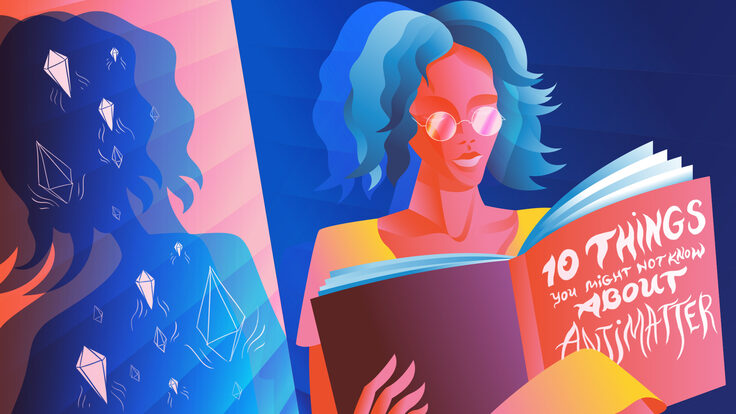Merriam-Webster announced over the weekend that dark energy has been admitted into the new edition of its Collegiate Dictionary along with more than 100 other up-and-coming terms--from air quotes and edamame to dirty bomb, malware, mondagreen, and wing nut.
As the Associated Press reported:
The wordsmiths at the Springfield, Mass.-based publisher say they picked the new entries after monitoring their use over years.
"As soon as we see the word used without explanation or translation or gloss, we consider it a naturalized citizen of the English language," said Peter Sokolowski, an editor-at-large for Merriam-Webster. "If somebody is using it to convey a specific idea and that idea is successfully conveyed in that word, it's ready to go in the dictionary."
Dark energy, defined as a "hypothetical form of energy that produces a force that opposes gravity and is thought to cause the accelerating expansion of the universe," was first used in 1998, as far as the dictionary folks were able to determine.
Theoretical physicist Michael Turner of the University of Chicago, who coined the term, said to symmetry: "Seventy-two percent of the universe and it took 10 years to get in? About time!"
Actually, dark energy arrived on the fast track, relatively speaking. Fanboy--a "boy who is an enthusiastic devotee, such as of comics or movies"--dates back to 1919. And prosecco--a "dry Italian sparkling wine"--waited 127 years after its first known usage for this recognition.
Impatient? Check out Merriam-Webster's online Open Dictionary, which allows people to submit fresh terms for consideration. Last we looked, recent entries included:
sandboni (noun) : a vehicle used on beaches to smooth sand entremanure (noun) : a person, usually vociferous, who professes to own one or more non-existent business endeavors moviehop (adjective) : To pay to see one movie at a cinema multiplex but hop from theater to theater watching several movies on the one ticket.






